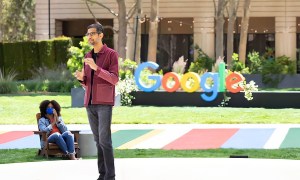
At this year’s Google I/O, Google announced its all-new Google News app — replacing Google Play Newsstand on mobile and desktop. It will also replace the now depreciated Google News and Weather app, meaning the app will no longer receive updates from Google.
The redesigned Google News app brings along features that use artificial intelligence to bring you news from all different perspectives, while also providing you with sources you want to read.
Rather than having to input all of your interests and preferences, Google News will provide you with news you want to see as soon as you open the app. With reinforcement learning, it will become better at showing you the news you want to see the more you use the app. You can also customize it by choosing to see less or more of a given topic.
When you open the app, you will see the “For You” tab at the top which briefs you with the top five stories that Google News organizes for you. This includes a mixture of important headlines, local news, and developments on topics you’re interested in.
To help make Google News more visually appealing, the app uses a format called newscasts. This gives users a preview of the story through a collection of articles, videos, and quotes on a simple topic. That way, the content provided can give you a chance to decide whether you want to read the story to begin with.
In order to gain deeper insight, Google News offers a “Full Coverage” feature which paints a complete picture of a story from a variety of different perspectives. Rather than scrolling through sources that tend to lean more one way than another, you’ll have access to headlines from all types of different sources, whether it’s articles, tweets, opinions, analysis, videos, and more. Content included under this feature is also the same for everyone, which gives all its users an impersonalized experience.
To create this feature, Google uses something it calls “temporal colocality” — a technology that maps relationships between entities and understands places, people, and things as a story evolves. It then applies the information that’s published to the web to organize it around storylines in real time. You will able to find an unfiltered view of news from all over the country through the Headlines section. This is also where you can explore other categories such as business, sports, entertainment, technology, and more.
There is also a Newsstand tab that allows you to access more than 1,000 magazine titles you can then follow. The app also makes subscribing to publications easier — as long as you’re signed into your Google account, you no longer have to go fill out forms or enter your credit card number to complete the process. Simply tap the “subscribe” button and you’re all set. Soon, you will also be able to access your paid content across all platforms, devices, and the publisher’s own sites without having to enter any of your login information.
The new Google News app is currently rolling out on Android, iOS, and desktop. The update should be completed for all users by the middle of May.
Updated May 10: Added information about Google News and Weather app depreciation.








